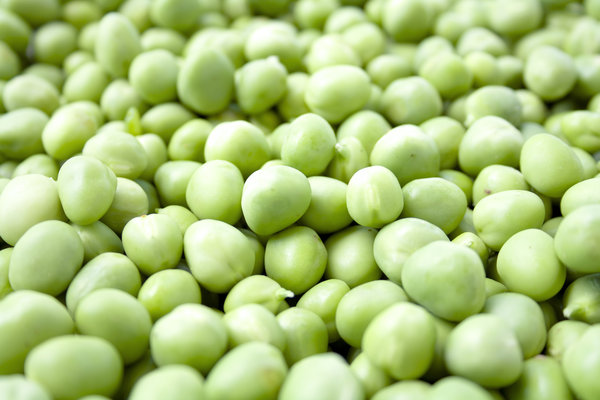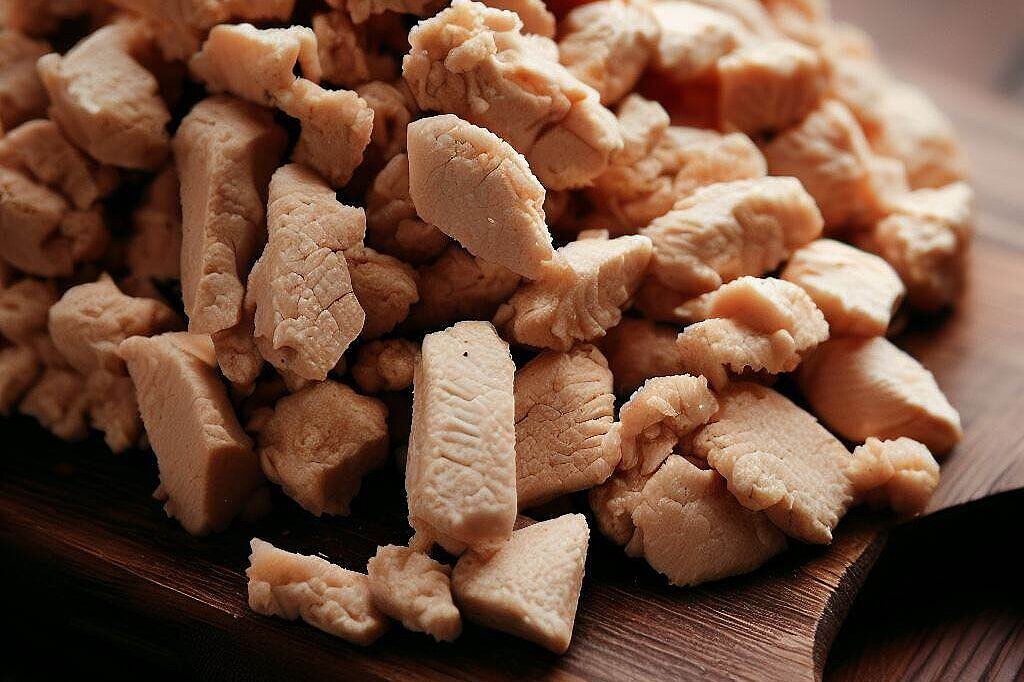Fish protein

What is fish protein and how is it produced?
Fish protein is a concentrate from the muscle meat of fish, which is produced using various processes such as drying, extraction or hydrolysis. Unwanted components such as water, fat, bones or scales are removed, leaving only the pure protein. Fish protein can come from different types of fish such as salmon, herring, mackerel or tuna. Depending on the origin and processing, the protein content can vary between 50 and 90 percent.
What are the benefits of fish protein for dogs?
Fish protein has many benefits for your dog's health and well-being. Here are some of them:
- Fish protein is a high-quality protein source that contains all the essential amino acids your dog needs to build and maintain muscles, skin, coat, immune system and other organs.
- Fish protein is easily digestible and can therefore also be suitable for dogs with sensitive stomachs or allergies. It does not burden the kidneys or liver and can help to regulate the metabolism.
- Fish protein is rich in omega-3 fatty acids, which have an anti-inflammatory effect and can promote your dog's heart health, brain function, vision and skin and coat quality.
- Fish protein can also provide other important nutrients such as vitamins A, D, E, B12, iron, zinc or iodine that your dog needs for his vitality.
What are the disadvantages of fish protein for dogs?
Fish protein also has some disadvantages that you should be aware of. Here are some of them:
- Fish protein can be high in heavy metals such as mercury or lead, which can accumulate in your dog's body over time and lead to health problems. You should therefore make sure that you only buy high-quality fish protein from controlled sources and do not feed it too frequently.
- Fish protein can also have a strong odor, which can be unpleasant for some dogs. It can also cause bloating or diarrhea if your dog is not used to it or gets too much of it.
- Fish protein can also lead to an oversupply of certain nutrients such as vitamin A or D if it is not dosed correctly. This can lead to symptoms of poisoning or an imbalance in the calcium-phosphorus ratio. You should therefore always follow the manufacturer's instructions and consult a vet if necessary.
How to feed fish protein correctly?
Fish protein can be used as a supplement or main ingredient in dog food. There are a few points to bear in mind:
- Pay attention to the quality of the fish protein. It should come from a sustainable catch and not contain any artificial additives or preservatives. Also check the best-before date and store it in a cool, dry place.
- Pay attention to the amount of fish protein. It should not make up more than 10 to 20 percent of your dog's daily protein ration.
Fish protein is obtained from the muscle meat of fish and is produced through various processes such as drying or extraction. It has many benefits for dogs, including high quality protein, easy to digest, rich in omega-3 fatty acids and other important nutrients. However, it may contain heavy metals and have a strong odor. Careful attention should be paid to dosage and high quality fish protein from a sustainable source should be preferred.
If you notice any signs of hypersensitivity or poisoning in your dog, you should see your vet immediately. We are not a substitute for a vet, but we try to be as accurate as possible. Every dog reacts differently and we recommend you get a second opinion or consult your vet if in doubt.
Stay healthy and take good care of your four-legged friend!😊
Similar to Fish protein
The benefits of whey protein for dogs Whey protein has several positive effects on the health and well-being of dogs. Here are some of them: Whey protein supports muscle building and recovery after...
Soy protein is the protein contained in soybeans. The soybean is a legume and originally comes from East Asia. There it has been used as a food for thousands of years. Various products are made from...
Pea protein has several advantages for dogs that make it an attractive ingredient. Firstly, pea protein is hypoallergenic, which means that it does not trigger allergic reactions. This is...
Chicken protein is a collective term for various proteins that are obtained from chicken meat, offal or feathers. Proteins are important building blocks for your dog's body and fulfill many...



